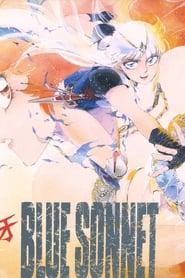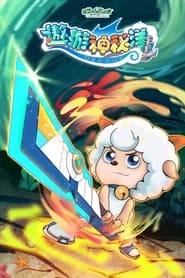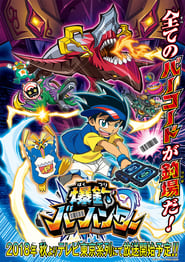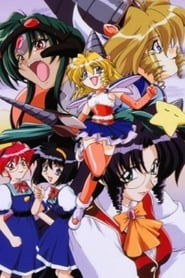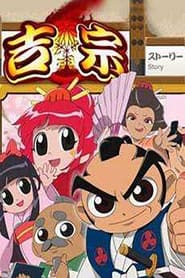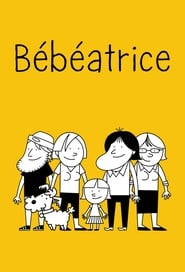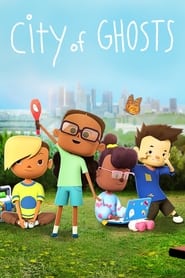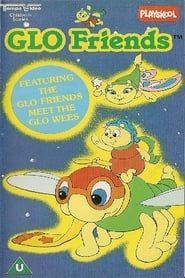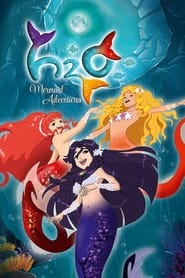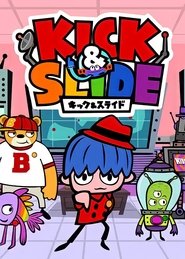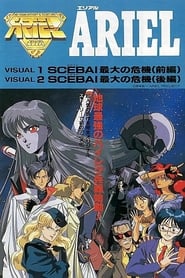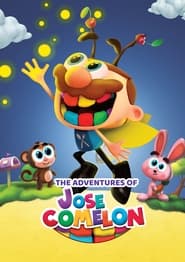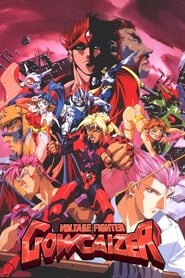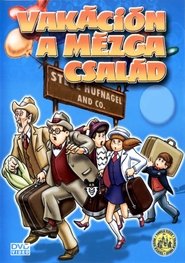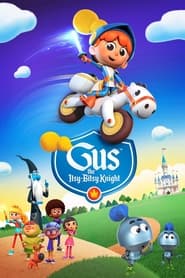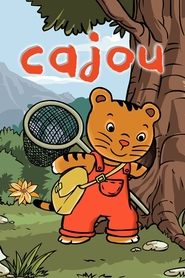Popular Animation TV Series on Tub Tv - Page 375
-
Red Fang: Blue Sonnet
1989
star 7Sonnet is a cyborg/esper from a harsh background and now trained to be the ultimate warrior and most powerful weapon in the world. She is sent to Japan to watch Komatsuzaki Lan, who is thought to be controlled by the rage of the esper Akai Kiba (Crimson Fang). Lan is a quiet girl who knows she`s different from everybody else and starts to show signs of Crimson Fang after comming into contact with Sonnet. In the course of fighting with Lan, Sonnet starts to rediscover her humanity. At the same time Lan has to fight to retain her humanity and control the Crimson Fang. -
喜羊羊与灰太狼之遨游神秘洋
2023
-
Bakutsuri Bar Hunter
2018
Bakutsuri Bar Hunter
2018
star 10Totta loves to fish. One day a bar soul named Potepen appears from the barcode on Totta's bag of potato chips. Together, Totta and Potepen use a special "Bakutsuri" bar rod item to fish for other bar souls. -
D4 Princess
1999
D4 Princess
1999
star 1Doris Ruridou is young princess who had just entered Teito Academy. She is also a Panzer, a person with special abilities and fights with a weapon called a "tool". Shortly after entering, her older sister shows up to teach her how to fight as a Panzer against other Panzers who challenge her. -
Ultraman Graffiti: Wild! Ultra Country
1990
Six episodes Ultraman OVA anime released in 1990 in VHS Tape. The story follows Ultraman and his family in his daily life as a salaryman car seller. -
よしむね
2006
-
Iczer Girl: Iczelion
1995
Iczer Girl: Iczelion
1995
star 6Throughout the galaxy, two villians destory and pillage anything in their path. Their names are Cross and Chaos, and they are ready to invade their next target: Earth. The only defense against these warriors are the Iczelions, a fusion of young girls, and Iczels, sentient body armor. Nagisa is a typical high school girl who is about to become the next Iczelion against her will, to defend the planet and save the human race! But not if she has anything to say about it... -
Bébéatrice
2018
Bébéatrice
2018
-
City of Ghosts
2021
City of Ghosts
2021
star 6.6Meet the Ghost Club! Their adventures take them all around Los Angeles as they interview ghosts, solve problems and learn about their city's history. -
The Glo Friends
1986
The Glo Friends
1986
star 4.7The Glo Friends is a television series based on the Glo Friends toyline, originally aired in 1986 as a segment of My Little Pony 'n Friends, that only lasted one season. My Little Pony aired the first 15 minutes, and the second half rotated among MoonDreamers, Potato Head Kids, and Glo Friends. The show was made by Marvel Productions and Sunbow Productions. The Glo Friends toyline, which preceded the television show, are small glow-in-the-dark toys in the shape of insects and other small creatures that were made by Hasbro's Playskool division in the mid-1980s. Books were also made by Ladybird to accompany each Glo Friend. -
H2O: Mermaid Adventures
2015
star 6.8The lives of teenagers Emma, Cleo and Rikki are forever changed when a magical, forbidden island gives them the power to turn into mermaids. -
Kick & Slide
2021
Kick & Slide
2021
The third generation of J SOUL BROTHERS from EXILE TRIBE is reimagined as 7 unique and diverse characters in "KICK & SLIDE". This is a slapstick story where the characters solve difficult cases!? and rare cases!? that occur in the colorful and pop vibrant city "Nakame Town" with dance and music. -
Ariel
1989
Ariel
1989
star 5To save the Earth from alien invaders and their giant monsters, Dr. Kishida does what any other red-blooded mad scientist would do: he builds a giant robot—the ultimate feminine fighting robot! Unfortunately, his granddaughters refuse to pilot it! Apparently, they've got more important things to do than becoming teenage super-heroes. Besides, how are you supposed to study for your college entrance exams while getting beaten up in battle? The fate of the world rests upon two people: Aya Kishida, one of the doctor's granddaughters, who may have to give up prep school to pilot the mighty (and lovely) ARIEL; and a mysterious alien named Saber Starblast, who may have the power to defeat the invaders once and for all... -
Jose Comelon
2020
Jose Comelon
2020
star 1Playing makes you hungry! Learn about healthy eating with the amusing stories of Jose Comelon! -
Voltage Fighter Gowcaizer
1996
star 8To save the Earth, Gowcaizer must defeat the manifestation of all negative human desires before the entity obliterates the human race. -
Itsudatte My Santa!
2005
Itsudatte My Santa!
2005
star 4Mai, a Santa in training, appears in front of an unlucky boy named Santa on Christmas Eve, promising him that she will make him happy for one night. -
Vakáción a Mézga család
1980
star 7The exciting summer adventures of the Mezga family is followed on an uninhabited island, for example, which is perhaps not uninhabited after all? And how will Maris neighbour become the next Minister of Health? And how does the Mezga's family escape from the captivity of the mafia? Everything will be revealed if you look at the Mezga family vacation stories. -
Gus the Itsy-Bitsy Knight
2021
star 7.3Once upon a time, there was a little boy, Gus, who wanted to become a great knight. Sorry, not a great knight… The Greatest knight in the whole kingdom of Karamel. Wielding with his laser sword, mounted on his electric pony, Gus never misses an opportunity to go on an adventure to accomplish all his missions. The problem is, Gus is… ITSY BITSY! He stands three apples high, to be precise, but has a heart the size of a house! Gus will prove to one and all that a brave heart can overcome everything, and that there’s no greater cavalier than Gus, the itsy bitsy knight! -
Cajou
2009
Cajou
2009
-
DC Super-Pets
2013
 Netflix
Netflix
 Amazon Prime Video
Amazon Prime Video
 Apple iTunes
Apple iTunes
 Apple TV Plus
Apple TV Plus
 Disney Plus
Disney Plus
 Google Play Movies
Google Play Movies
 Paramount Plus
Paramount Plus
 Hulu
Hulu
 HBO Max
HBO Max
 YouTube
YouTube
 fuboTV
fuboTV
 Peacock
Peacock
 Peacock Premium
Peacock Premium
 Amazon Video
Amazon Video
 The Roku Channel
The Roku Channel
 AMC+
AMC+
 Kocowa
Kocowa
 Hoopla
Hoopla
 The CW
The CW
 Vudu
Vudu
 Starz
Starz
 Showtime
Showtime
 PBS
PBS
 Pantaflix
Pantaflix
 FXNow
FXNow
 Tubi TV
Tubi TV
 Kanopy
Kanopy
 Comedy Central
Comedy Central
 Crunchyroll
Crunchyroll
 Microsoft Store
Microsoft Store
 Redbox
Redbox
 Sun Nxt
Sun Nxt
 ABC
ABC
 DIRECTV
DIRECTV
 Crackle
Crackle
 Fandor
Fandor
 Plex
Plex
